—————————————————————————————————————————————————————————————————————
$6.3 billion for housing, broadband, and other essential infrastructure

Dear friends and neighbors,
In my last e-newsletter, I shared details about some of the key operating budget and policy wins of the 2021 legislative session. By focusing our work on four priority areas – COVID-19 response, economic recovery, racial equity and justice, and climate action – we met the challenge of these historic and unprecedented times, delivering on our promise to prioritize the health and well-being of those most impacted and disproportionally harmed by the pandemic.
For this newsletter, I’m focusing on our capital construction budget. This is what pays for the construction and upkeep of our state’s public buildings, like schools, hospitals, and housing. It also funds grants and loans to local governments and non-profit organizations for construction and other infrastructure projects.
As with the Washington Recovery Budget, the capital construction budget threaded racial equity through the entire budget development process, applying an equity lens to make decisions on shovel-ready projects and providing resources to underserved and under-resourced communities with a $10 million appropriation for technical assistance and predevelopment grants.
The 2021-23 capital construction budget passed the House and Senate unanimously this year. I’m pleased to provide you some overall highlights of this two-year budget, as well as some specific projects funded here in the 27th District.
A record $6.3 billion investment in projects across the state
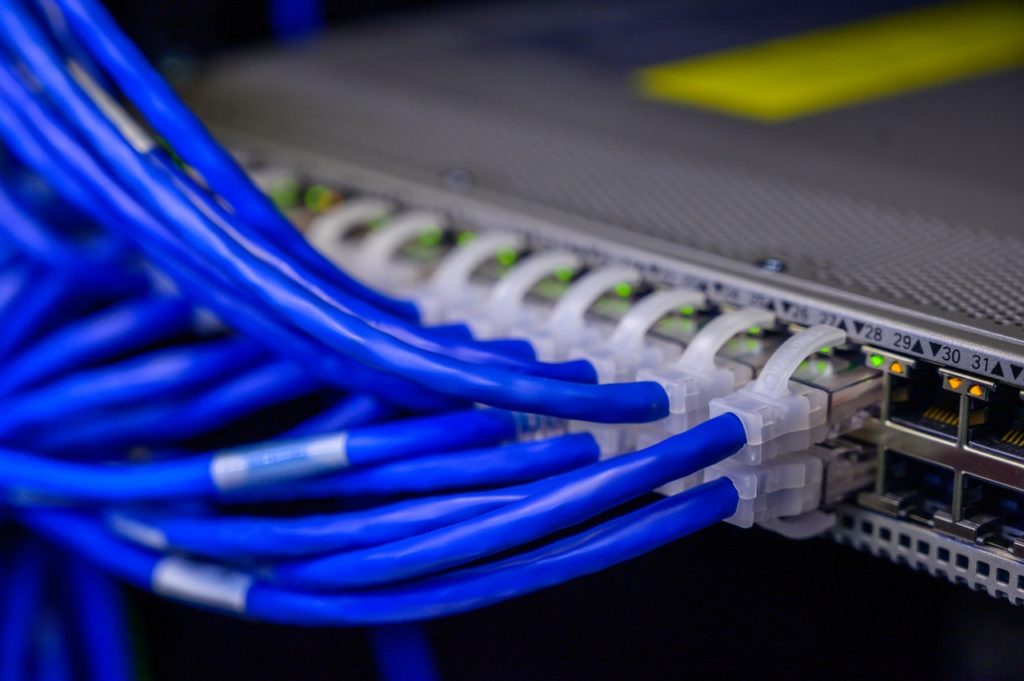
Our state’s infrastructure is the foundation for our economy and our quality of life. That’s why every member of the House and Senate voted to approve this new, record $6.3 billion budget that invests in construction projects to strengthen infrastructure all across our state.
One thing we’ve learned from the COVID-19 pandemic is that broadband is as crucial a utility as water and electricity. Reliable internet service allows people in every corner of the state to access employment, education, medical care, banking, shopping, and more. So we included a massive $411 million push for broadband access in this two-year budget – the single largest capital budget broadband investment in our state’s history.
We’re also investing big in housing, education, and behavioral health. Some of the highlights are:
Early learning, education and higher education ($1.55 billion)
- $48 million for early learning and childcare investments (COVID related)
- $970 million for public school construction
- $314 million for public universities (not including UW teaching hospital)
- $233 million for community and technical colleges
Behavioral health ($428 million)
- $201 million for a new, 150-bed teaching hospital at UW
- $95 million for competitive grants to community behavioral health providers
- $51 million to design a new 350-bed forensic hospital at Western State
Affordable housing and emergency shelters ($350 million)
- $175 million for the Housing Trust Fund
- $120 million for acquisition of property and buildings that can be rapidly converted to housing
- $42 million for utility and infrastructure costs related to affordable housing
- $10 million for preservation of existing affordable housing
Essential public infrastructure ($724 million)
- $411 million for broadband infrastructure
- $129 million in public works grants and loans
- $113 million for federal stimulus-funded infrastructure
- $40 million for Community Economic Revitalization Board projects
Local projects receive capital budget funding
You may have seen this article in the News Tribune about the “Home at Last” project at S. Fourth St. and Broadway in Tacoma. These 54 housing units were constructed to rent to people and families in our community who are experiencing homelessness or otherwise face barriers to housing. This project received capital budget funding in the previous budget cycle and has now opened its doors to provide much-needed affordable housing. (For more 2019-21 capital budget projects in our community, see this newsletter from June of 2019.)
I want to also give a shout-out to my 27th District seatmates, Sen. Jeannie Darneille and Rep. Jake Fey, who also advocated for the projects below to be included in the 2021-23 capital construction budget. This truly was a team effort. It will be exciting to see the following projects take shape and come to fruition:
- $5 million for the Tacoma Housing Authority to purchase property that can be quickly turned into affordable housing
- $2.1 million for 60 units of affordable housing in the Hilltop neighborhood through a partnership between Shiloh Baptist Church and the Tacoma Housing Authority. One building of 40 units would house individuals and families with low incomes, and the second building of 20 units would house individuals in recovery or in community re-entry who are at risk of homelessness
- $1.54 million for demolition, site preparation, and materials for the Forterra Hilltop project, which will address the community need for home and business ownership, as well as community-oriented rental space in the Hilltop
- $2 million for the “Links to Opportunity” project in the Hilltop Business District, which includes infrastructure improvements like enhanced pedestrian and bicycle access, complementing Sound Transit’s Hilltop Tacoma Link Extension
- $919,000 to acquire and renovate the historic Nettie Asberry House in the Hilltop neighborhood, helping to preserve an important piece of Tacoma’s rich Black history
- $46 million for UW Tacoma’s Milgard Hall building, which is scheduled to open in 2022. It will house parts of the Business School, have lab space for the School of Engineering and Technology, and space for the Global Innovation and Design Lab
- $16,000 for the Next Chapter Shelter at the former Morgan Motel, which provides shelter and support for homeless pregnant women and single mothers

Courtesy: UW Tacoma
The following funded projects are not located in the 27th District, but are important to the greater Tacoma/Pierce County community, and I’m thrilled they were able to get capital budget funding:
- $1.54 million for the Asia Pacific Cultural Center
- $246,000 for master planning of 29 undeveloped acres that Amara – one of the oldest and most prominent providers of services and resources for foster youth and their families in our area – envisions for co-locating its critical services
If you have questions about any of these projects, the capital budget, or other legislative matters, please don’t hesitate to reach out. It’s an honor to serve you and our community as your state representative.
Sincerely,

Last week of session and telephone town hall announcement
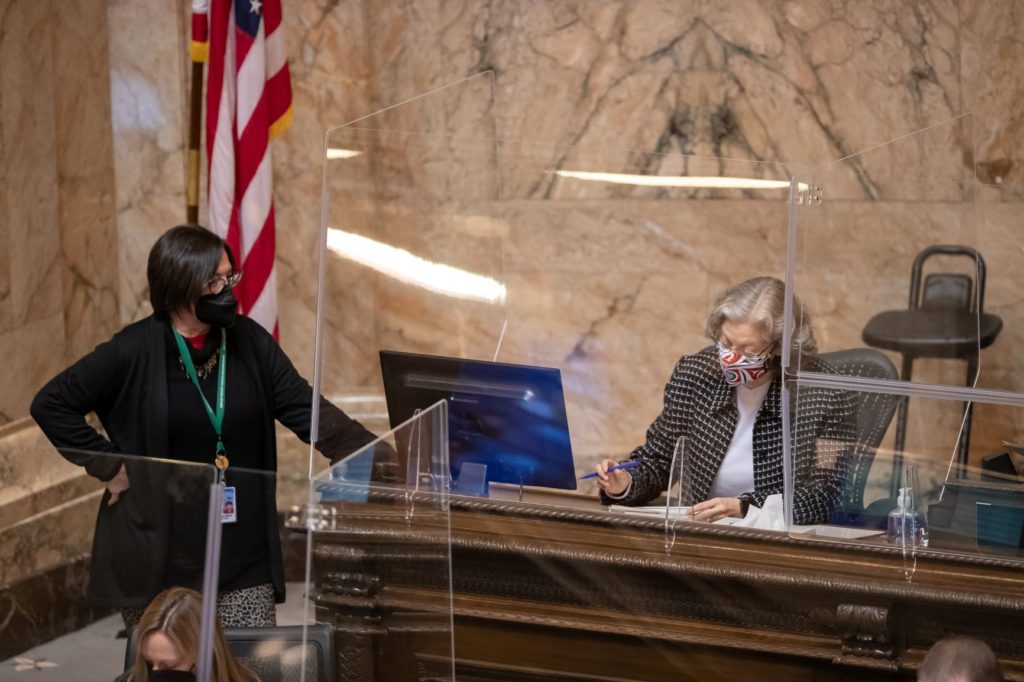
Dear friends and neighbors,
With just a few days left in the 2021 legislative session (April 25 is the last day), lawmakers are focused on finishing our work and passing a new two-year budget for our state.
For many folks, the activity at this point in the session can seem a bit confusing. Some bills that have passed both chambers are headed to the governor’s desk to be signed into law, but others may need some additional work.
If a bill that passed one chamber is amended (changed) in the other chamber, it needs to go back to the original chamber for what’s called concurrence. This means the other chamber has to vote on it again. If they pass it again, it means they concur, or accept the changes, and the bill continues to the governor’s desk.
But what happens if one chamber doesn’t want to concur with amendments to a bill?
I recently made a short video about how bills go back and forth between the House and Senate, and the various detours they can take on the path to becoming law. My hope is that this takes some of the mystery out of the process:
In addition to concurrences, House and Senate negotiators are working on the final versions of our state operating, transportation, and capital construction budgets. All of these will be public soon and will be voted on before the legislature adjourns on April 25.
When the session began back in January, I said House Democrats would focus our work in four areas: COVID-19 response, economic recovery, advancing racial justice and equity, and addressing climate change. When we unveiled our budget proposal last month, these priorities were threaded throughout our investments. I expect the final version of the budget will continue to center these priorities.
Duty to intervene, independent investigation bills clear Legislature

The conviction of ex-law enforcement officer Derek Chauvin this week for the murder of George Floyd was a step forward for police accountability. Read the statement from our Black Members Caucus on the verdict here.
But there is still much work to be done to stop unnecessary police violence and create clear pathways to justice when someone is shot or killed by police.
Preserving and protecting people and communities must be law enforcement’s highest value.
Law enforcement must build trust with communities through accountability and transparency.
That’s why House Democrats prioritized a package of policing reform bills this session that came out of the work of the Policing Policy Leadership Team.
Two important bills from this package are now on their way to the governor’s desk:
House Bill 1267 creates a statewide Office of Independent Investigations to ensure effective, accurate and truly independent investigations into police uses of deadly force.
Senate Bill 5066, known as the “duty to intervene bill,” requires officers to report unnecessary uses of force to their superior.
Meanwhile, the governor has already signed Senate Bill 5055 into law, which ensures that arbitration processes are not used as a shield against police accountability.
Save the date! Next 27th District telephone town hall is May 4th
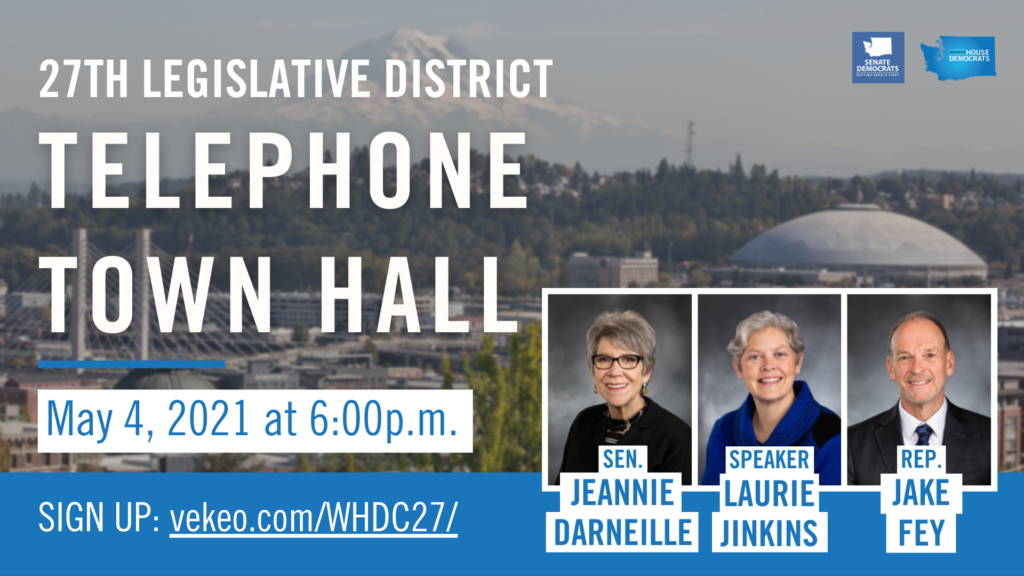
After the legislative session ends, my seatmates and I will be holding a telephone town hall to answer your questions and hear your thoughts.
We will be calling households in the district at 6:00 p.m. on Tuesday, May 4.
To ensure you receive a call, sign up at the following link at least one hour before the start of the town hall:
Click on the “sign up” link for the May 4 event, fill out your name and phone number, and you’ll be all set.
Audio from previous 27th District telephone town halls is also available at the above link, if you want to get a sense of what past events were like. I hope you’ll join us May 4th, and I look forward to answering your questions.
It’s an honor to represent the 27th District. If you have questions or comments about anything in this e-newsletter, or any other legislative topics, please don’t hesitate to contact me.
Sincerely,

Vaccine eligibility expands, bills head to governor’s desk
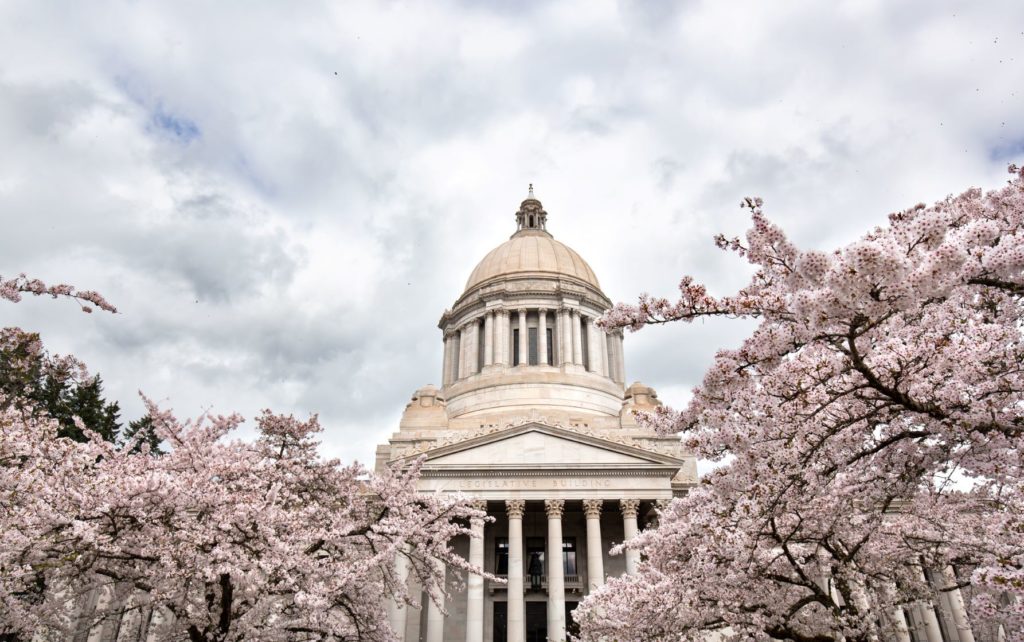
Dear friends and neighbors,
We are in the final weeks of the 2021 legislative session. The end of this week marks another important cutoff date in the legislative calendar: Opposite House Cutoff.
By Sunday, any House bills under consideration in the Senate must pass that chamber in order to continue moving forward. Likewise, any Senate bills under consideration in the House must pass off the House floor by Sunday’s cutoff. The exception is any bill necessary to implement the budget.
Meanwhile, the House and Senate each passed their budget proposals last week. Highlights of the House budget were featured in my previous e-newsletter.
This week, House and Senate budget negotiators have begun working through the differences between the two budgets in order to come to a final agreement. While the two budgets have many similarities, there are differences in spending amounts for various areas.
You can view the House budget as passed here.
You can view the Senate budget as passed here.
House bills heading to governor’s desk
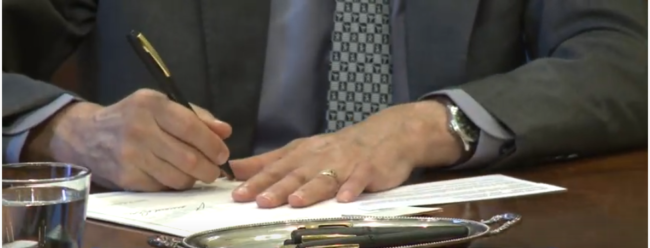
Several House bills that will help people, families, and communities across our state are heading to the governor’s desk or have already been signed:
Easing cost barriers for childcare and early learning facilities
House Bill 1331 gives cities and counties the ability to reduce impact fees for building and expanding childcare and early learning facilities. This is a big win for working families and for communities struggling with access to affordable childcare. The measure allows childcare and early learning facilities to be excluded from impact fees up to 80 percent and higher. For a full 100 percent exemption, a developer would have to indicate that 25 percent or more of the children and families using the facilities qualify for state-subsidized childcare. Headed to governor’s desk.
Banning private prisons
House Bill 1090 bans for-profit, private prison companies from operating detention facilities in our state. Many of you have written to me about your concerns with Tacoma’s Northwest Detention Center, where hunger strikes, attempted suicides, and suicides have occurred with alarming frequency. This bill means that facility will close in 2025. Headed to governor’s desk.
Expanding help for struggling families during these difficult times
House Bill 1151 expands cash and food assistance to families that need it most in our state – help that is desperately needed at a time when many are struggling due to the impacts of the COVID-19 pandemic. With food insecurity on the rise in our state, this bill allows for five additional months of food assistance to families who qualify, and updates existing programs to help ensure families have options beyond food banks. It passed with strong bipartisan support. Signed by governor.
Great news: all adults over 16 eligible for a COVID-19 vaccine starting April 15
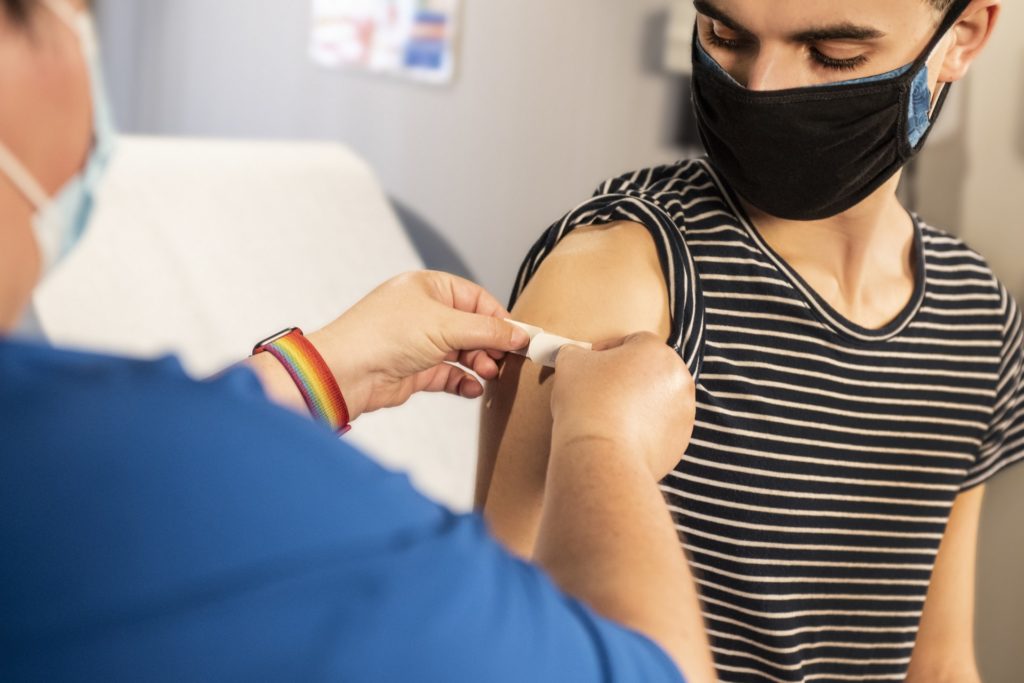
Thanks to the heroic work of healthcare professionals and expanded vaccine supply from the federal government, the governor recently announced that all adults over 16 will be eligible to receive the COVID-19 vaccine starting April 15th.
This accelerated timeline comes, in part, as a response to a recent increase in COVID cases. New variants are highly transmissible, and we must continue to wear masks, social distance, and wash our hands, even once fully vaccinated.
I know it’s hard to keep this up. We’ve all been living under these restrictions since this time last year. But now is not the time to give up.
Many, many people in our community and across our state have made sacrifices to help protect the health and safety of others. And since the “Stay Home, Stay Healthy” order first came down, we’ve saved countless lives. In the meantime, multiple vaccines have been developed, and millions of doses of these vaccines have been given.
To find a vaccination appointment, use the Vaccine Locator, now available in multiple languages. And if you can’t get online, call the state COVID-19 Assistance Hotline at 1-800-525-0127.
It’s an honor to serve you. Please reach out to me if you have any questions, comments, or concerns.
Sincerely,

House rolls out “Washington Recovery Budget”
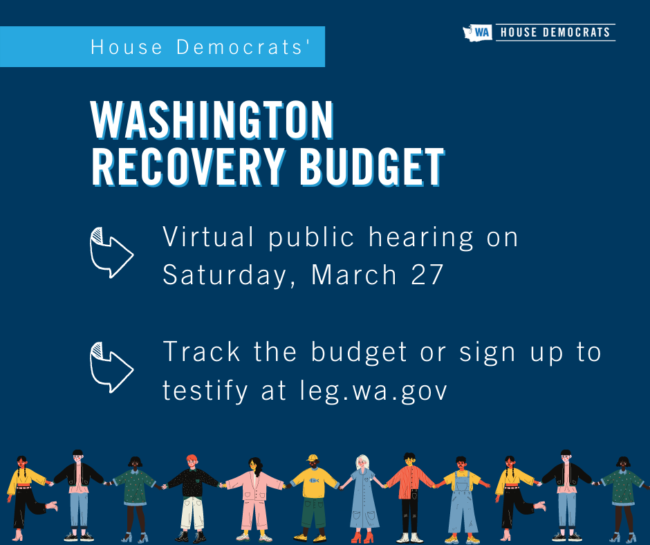
Dear friends and neighbors,
Today, House Democrats rolled out our state operating budget proposal, the Washington Recovery Budget (en Español). I am so excited to share this budget with you, which uses state and federal funds from the American Rescue Plan to support the people and families who have been hit hardest during the COVID-19 pandemic.
It has been a rough year for so many of us, and we can build back a better, more inclusive Washington that is even stronger than we were before. In the past, the legislature made harmful cuts when budgets were tight that resulted in some Washingtonians being left behind when the state once again prospered. Black, Brown, and Indigenous families and communities were among those most negatively impacted by these previous austerity budgets.
That’s why the House budget team worked intentionally to thread racial equity throughout the entire budget development process. The result is not just line items we can point to, but values that are reflected in every single decision.
Click here or on the video below to see why we can only recover if we recover together. And read on to learn more details about our Washington Recovery Budget.
COVID-19 response and economic recovery
Two of the top priorities I have been talking about since the beginning of the legislative session are COVID-19 response and economic recovery. Here are some of the ways the Washington Recovery Budget addresses these priorities:
- Over $1 billion toward paying the back rent accrued during the governor’s eviction moratorium so families can stay in their homes and landlords can recoup losses
- $250 million in small business grants to help get cash out to those businesses who kept their doors closed to protect others, as well as $600 million for unemployment insurance tax rate cuts to lessen the burden on businesses
- Over $140 million in food assistance programs so that families will not go hungry and our food security network is maintained
- Investing $400 million in child care grants and $90 million to reduce co-pays for families in the Working Connections Child Care program, which provides quality child care for families with low incomes – by investing in our early learning and child care system, families can go back to work when it is safe, knowing their children are safe too
- Nearly $38 million to increase temporary cash grants to our state’s lowest income families, and $26 million to extend these grants during these times that struggling families need them the most
- Nearly $1.2 billion for COVID vaccines, contact tracing and testing, as well as other major boosts to our public health system, plus $35 million help people who are uninsured or underinsured access the health care they need through qualified health centers, rural health centers, and free clinics
Racial equity threaded throughout

House Democrats infused equity into every part of the Washington Recovery Budget and are committed to uplifting all communities, especially Black, Brown, and Indigenous communities that face the most barriers while recovering from the pandemic.
We also recognize that our undocumented neighbors have been left out of some past federal assistance during the pandemic. These are the neighbors we rely on to keep our economy moving, from providing food from farm to shelf, to serving in other essential and frontline positions. Rather than leaving these hardworking Washingtonians behind, our budget invests $340 million in immigrant relief funds, specifically providing unemployment-related assistance to our undocumented neighbors.
A sustainable, equitable budget
In order to make these investments to get our recovery on track, our budget proposal uses some temporary and one-time funds that are available, including those from the federal American Rescue Plan Act and the state’s “rainy day” fund.
Other investments are long-term and require permanent funding sources. That’s why we are proposing a Capital Gains Excise Tax, which asks some of the wealthiest among us – those who have thrived and profited despite the pandemic’s impacts – to pay their fair share.
Our proposal pairs the Capital Gains Excise Tax with the Working Families Tax Exemption, which will provide greater financial stability for over 400,000 Washington taxpayers, and improve the lives of 1 in 4 children in our state.
Next steps
There will be a virtual public hearing on the Washington Recovery Budget tomorrow, March 27. You can watch it online here.
Everyone deserves a shot at opportunity, and that’s why I am proud to support the Washington Recovery Budget. Your comments, questions, and feedback are important to me. Please don’t hesitate to contact me, and I will continue to keep you posted on the budget as it moves forward through the legislative process.
We’re all in this together.
Sincerely,

Black History Month, Lunar New Year, and a COVID-19 relief package

Dear friends and neighbors,
February is Black History Month, a time for honoring the many achievements of Black and African Americans throughout history. It’s also a time for reflecting on how we as a nation must do much more to uplift our Black and African American communities by dismantling systemic racism and promoting equity and inclusion in policymaking.
In the state House, we’re celebrating the largest Black Members Caucus in our legislature’s history. These eight new and returning members are working to make our state a better place, bringing their communities’ voices and their own lived experiences to the conversations around our state’s COVID-19 response, economic recovery, tax reform, police accountability, climate change, and more.
As Speaker of the House, I’m committed to intentionally centering equity in the work we do. Ms. Amanda Gorman’s words are an inspiration to me and many of my colleagues as we strive to be the light for all our state’s communities during these challenging times.
Legislature recognizes Lunar New Year

Across our state and around the world, people are preparing to celebrate the Lunar New Year, a holiday of great significance in many Asian and Pacific Islander communities.
Three years ago, state Rep. My-Linh Thai – who is also the first refugee legislator to serve in the House – started the tradition of bringing a Lunar New Year resolution forward for adoption at the House rostrum.
By entering this resolution into the legislative record, the House is saying to our Asian American and Pacific Islander communities that we see you, we celebrate with you, and we honor your many contributions to our state.
This year’s resolution includes a special shout-out to the many frontline health care workers, essential workers, and small business owners who are helping our state meet the challenges of this pandemic.
You can join the virtual Lunar New Year Celebration this Friday, February 12 at noon. The event is open to all. Come celebrate the Year of the Ox!
COVID-19 relief bill heads to governor’s desk
In my last e-newsletter, I shared details of the Step One plan, a $2.2 billion package to help families and businesses most impacted by the COVID-19 pandemic.
I’m pleased to report that both the House and Senate have passed this package, and it is on its way to be signed by the governor.
This money will go to help people struggling to pay rent, to small restaurants and other neighborhood businesses hit hard by the ongoing pandemic, to school districts, to uninsured and underinsured individuals, and to Black and Brown communities, which have been disproportionally harmed.
There is also $618 million in funding to boost our state’s public health efforts to address the pandemic – for distributing vaccines, contact tracing and testing, and epidemiology.
While this is a giant first step, stay tuned for the work we’ll continue to do this session. Our focus will be on advancing COVID-19 response, economic recovery, equity and addressing climate change.
Save the Date – 27th LD Virtual Town Hall
This year, the 27th Legislative District’s annual legislative town hall will be a virtual event. It will be held on Wednesday, March 10th, from 5:30-6:30 p.m. I’ll be hosting it along with Rep. Jake Fey and Sen. Jeannie Darneille. More details and a link to the event will be shared as the date gets closer.
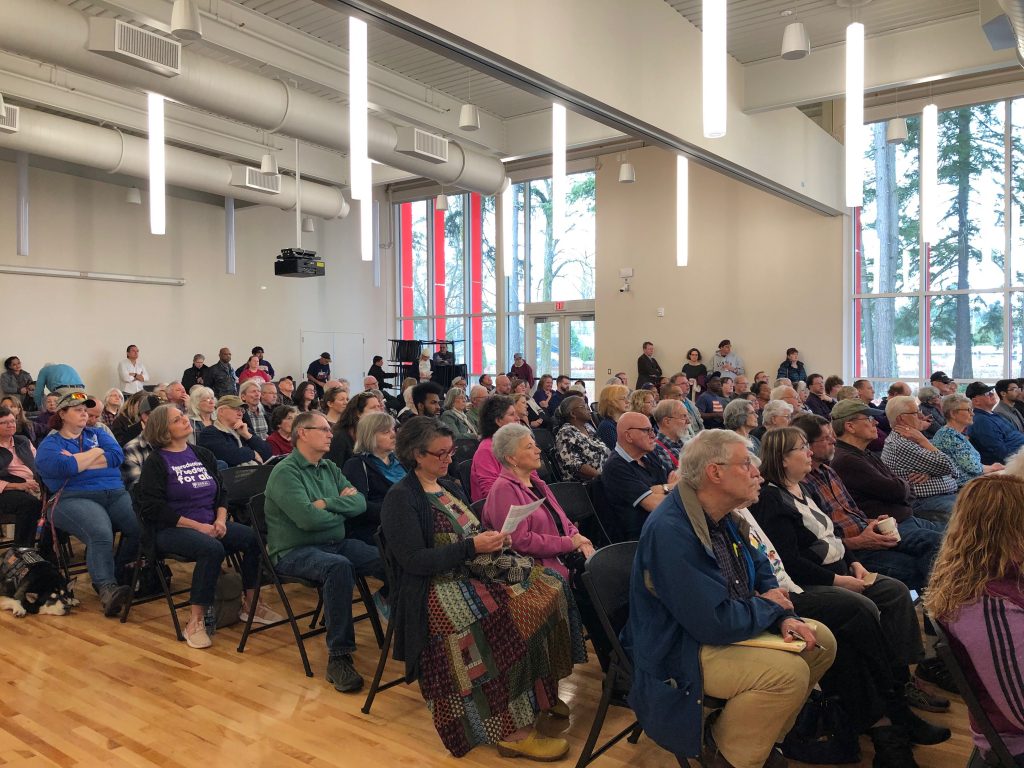
As always, it’s an honor to serve you. If you have questions, comments, or concerns, please don’t hesitate to reach out to me.
Sincerely,

Update on vaccines, Step One for community and economic recovery
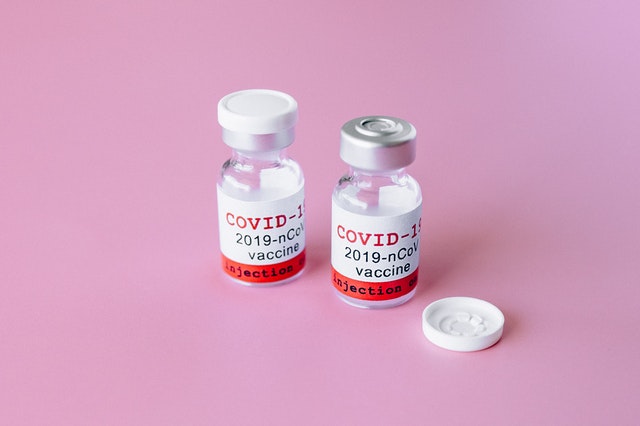
Dear friends and neighbors,
Last week Washington’s new Secretary of Health, Dr. Umair Shah, gave House Democrats an update on distribution of the COVID-19 vaccine in our state.
The good news is the lag between when vaccines arrive here and when they are getting into people’s arms is minimal. Data collection is slower than we wish, but it appears what we are distributing is increasing every day, with a rolling average of 24,000 vaccinations per day.
Earlier this week, the governor unveiled an updated COVID-19 vaccine plan that aims to increase the number of Washingtonians vaccinated per day to 45,000. Here’s how you can stay in the loop:
- Vaccines are being distributed in phases. You can use the Phase Finder online tool to find out if you’re currently eligible for the vaccine, or to sign up to get an alert when you are.
- Currently, we’re in Phase 1B-Tier 1. That means anyone 65 and older, and 50 and older living in a multigenerational household, can get the vaccine.
- The vaccine is also still available to those who are eligible in Phase 1A, including high-risk health care workers, high-risk first responders and long-term care facility residents. This timeline lays out the phases and estimated start dates.
- This interactive COVID-19 vaccine data dashboard is a partnership from the Department of Health and Microsoft’s AI for Health team.
Helping Washington families and businesses most impacted by the COVID-19 pandemic
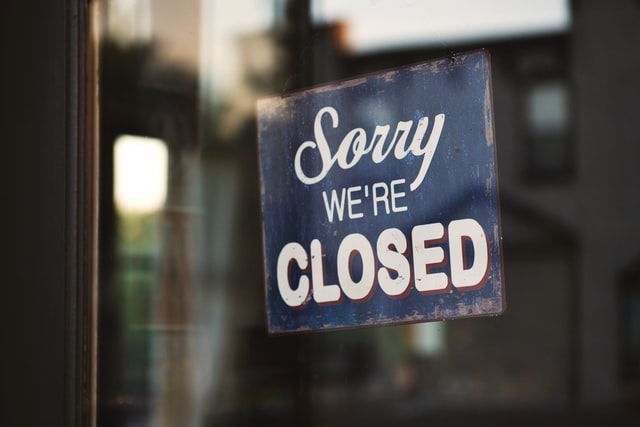
Last week, House Democrats announced a plan that will help people struggling to pay rent, small restaurants and other neighborhood businesses, school districts, uninsured and underinsured individuals, and Black and Brown communities, all of which have been disproportionally hurt by the ongoing pandemic.
We’re calling it Step One, because it is the first but not the only step legislators will take this session to get help out to where it is desperately needed.
The proposal directs $2.2 billion in federal funds into critical areas that help families and businesses:
BOOSTING PUBLIC HEALTH: $618 million for vaccine distribution, contact tracing and testing, and epidemiology funding so that the governor’s plan to vaccinate 45,000 people a day has the necessary funding in the short-term.
KEEPING PEOPLE IN THEIR HOMES AND FED: $365 million for rental assistance, foreclosure assistance, and for small landlords to stay on top of their mortgages. The plan also includes $52 million for food and cash assistance, and TANF extension.
INVESTING IN SMALL BUSINESSES: $240 million for grants for small businesses and non-profits to maintain operations and help with reopening.
GETTING STUDENTS CAUGHT UP: $714 million for schools to address learning loss, keep teachers on the payroll and get ready to bring kids back to the classroom when it’s safe to do so. The plan also includes $50 million for grants for child care providers.
SUPPORTING ALL WASHINGTONIANS: $70 million for long-term care and developmental disabilities programs and $6 million for health care for those who are underinsured and uninsured. The plan also includes $65 million for immigrant relief assistance and $5 million for grants to provide emergency financial aid for undocumented college students.
What’s next:
The Step One proposal had a public hearing in the House Appropriations Committee this week. The bills reflecting the changes and appropriations are HB 1367 and HB 1368 and their Senate companion bills are SB 5343 and SB 5344. We hope to move these bills off the House floor by next week.
Again, this early action is just a first step. Still ahead is a supplemental budget, a new operating budget for the upcoming 2021-23 biennium, and other bills that address needs in our communities due to COVID-19.
I’ll keep you posted on these early action measures. In the meantime, please reach out and contact me with your questions, concerns, and comments.
Sincerely,

Welcome to the 2021 Legislative Session
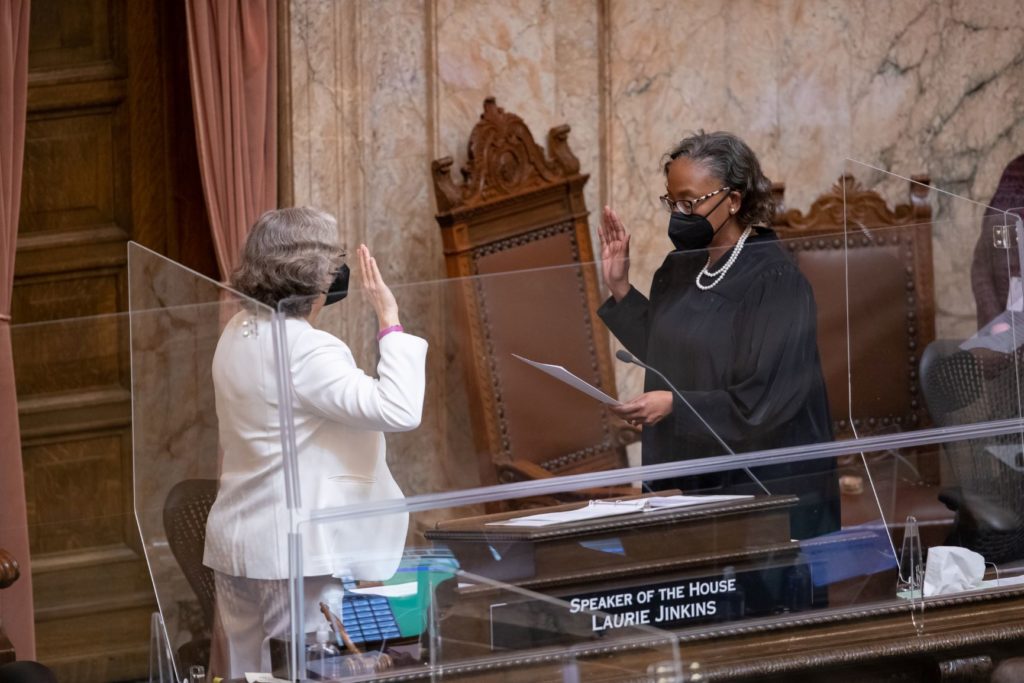
Dear friends and neighbors,
While the 2021 session will be mostly remote, legislators convened in our state capitol on Monday in person as required by our state constitution so that we could adopt temporary rules allowing for remote proceedings.
The photo at the top of this newsletter is my masked, socially-distanced swearing-in as Speaker of the House on Monday by Washington State Supreme Court Justice Helen Whitener. In the photo you can also see the new plexiglass barriers that have been installed on the House rostrum to help protect the health of members and staff from COVID-19. What a difference from last year’s opening day.
As I said in my brief opening day remarks, we are in the hardest of times as a state right now. But there is hope on the horizon. And legislators will be working hard this session to make hope a reality for all people in our state.
A lot of thought and planning has gone into making the legislature more accessible than it’s ever been for the people of our state. In this video I recorded with Sen. Andy Billig, we describe the changes in place, and how it’s now easier than ever for people to participate in the legislative process. You can also click here for more information on how to testify remotely, comment on a bill, or submit written testimony.
Please don’t hesitate to reach out to me this session with your questions, concerns, or comments. We will get through these hardest of times together.
Sincerely,

Hope is here – because of vaccines
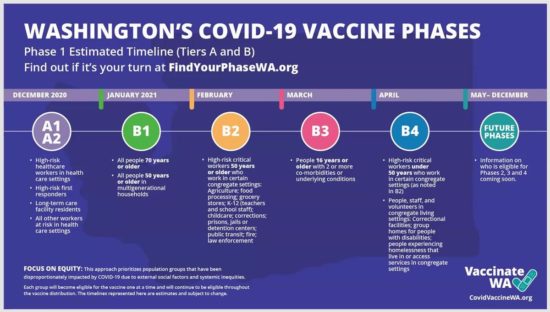
So many of us felt hope as vaccines began to be rolled out in our state last month. As someone who works in the public health field when the legislature is not in session, I was thrilled to see that thousands of Pierce County residents had received their first dose of the COVID-19 vaccine by the end of last year.
As we begin the 2021 legislative session, my focus is on ensuring that the window between when our state receives vaccine shipments, and when those vaccines get into the arms of people who need them, is as narrow as humanly possible.
The Washington State Department of Health (DOH) recently announced its new timeline for vaccine distribution in our state. As the federal government releases more vaccines, this timeline may be shortened and additional groups added. I will continue to press to get vaccines out more quickly, so stay tuned for updates.
You can check your eligibility by taking a short survey at findyourphasewa.org. Also, visit this DOH page for helpful information and videos that detail everything else you might want to know about the vaccines.
WATCH: House Democrats introduce Police Accountability Agenda for 2021
Across our nation, people are taking part in historic protests calling for systemic change. Here in our own community, we have seen the calls for justice for Manny Ellis, a Black man whose death while in police custody resulted in the Governor ordering a State Patrol-led investigation.
Undoing the grip that systemic racism has on every part of our lives begins by rebuilding communities’ trust in law enforcement through police accountability, reform and justice. That’s why last year House Public Safety Committee Chair Rep. Roger Goodman assembled a Policing Policy Leadership Team (PPLT) made up of members of the Black Members Caucus and the Members of Color Caucus.
Over the interim, the PPLT met with the families of victims of police violence, as well as representatives from major community organizations. This week, together with the Washington Coalition for Police Accountability, they rolled out their legislative agenda for 2021 in a virtual press conference, which you can watch on TVW by clicking here.
The proposed legislation this session will be in the following areas:
- Police accountability and transparency
- Police tactics and use of force
- Independent investigations and prosecutions of police shootings
Happy holidays – we’re all in this together
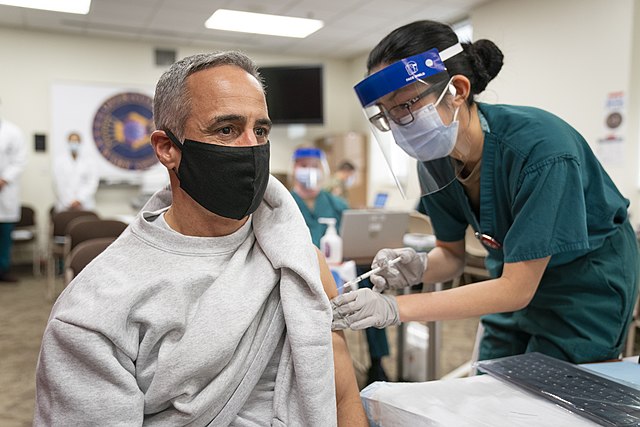
Dear friends and neighbors,
As the year winds down, I’m guessing most of us are pretty ready to say goodbye to 2020. This has been a tough year for so many, including right here in our community. The struggles people are experiencing – unemployment, financial hardship, housing insecurity, health challenges, isolation from loved ones, stress around remote work and school – are very real.
This week marked the winter solstice: the shortest day of the year with the least daylight. Reaching this point means we have now turned a corner, and each new day going forward brings us a little more light.
Likewise, there is hopeful news as we look ahead. The COVID-19 vaccine is being deployed in our state right now, starting with our frontline health care workers, first responders, and those in congregate care settings. And state lawmakers are gearing up to begin the 2021 legislative session next month to address our state’s most pressing issues, including pandemic response, economic recovery, climate change, and racial equity.
As I said in my last e-newsletter, the coming session will look very different than previous ones because it will be conducted remotely. But it’s how we’ll do the people’s work safely and transparently while continuing to make progress in fighting this pandemic and reopening our economy.
I wish you and those you love a safe and healthy holiday season. Please don’t hesitate to reach out to me with your questions, comments, and concerns.
Sincerely,

Coping with COVID during the holidays
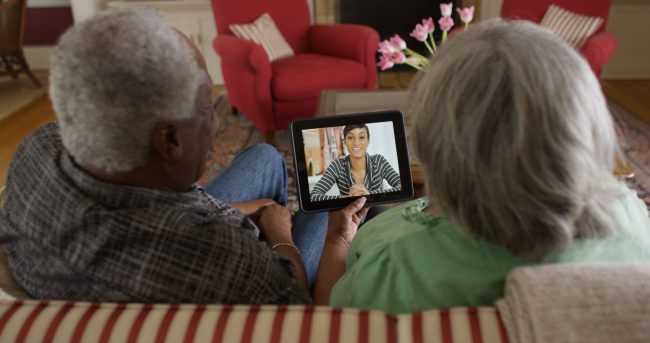
Staying socially connected while remaining physically distant during this pandemic has been challenging for many of us. Some are using video chat programs to keep in touch with friends and family, but even technology can’t make up for being apart during the holidays.
Maybe you’ve had to have tough conversations with family and friends about how to celebrate while making sure everyone feels safe. Our state’s Department of Health (DOH) experts have pulled together a short podcast with some tips on how to navigate challenging COVID conversations:
- Listen proactively by asking open-ended questions, and shifting away from giving advice or problem solving.
- Set boundaries by being clear about what makes you feel safe and when you need to step back from the conversation.
- Regulate your reactions by taking time to pause and resisting the natural urge to respond quickly and emotionally.
- Own your mistakes by taking responsibility if you say something harsh and normalizing that mistakes will happen in times of intense stress.
- Don’t be afraid to ask for help from friends, families or people trained in behavioral health. The WA Listens support line (1-833-681-0211) is free, anonymous, available in multiple languages and happy to guide you to support.
These conversations are not easy. But they’re necessary to keep each other safe while staying connected.
And if you’re feeling stressed, overwhelmed, or sad, know that you are not alone. If you need help coping during the holidays, Washington state DOH has mental health resources as does NAMI Pierce County.
Getting ready for the 2021 session
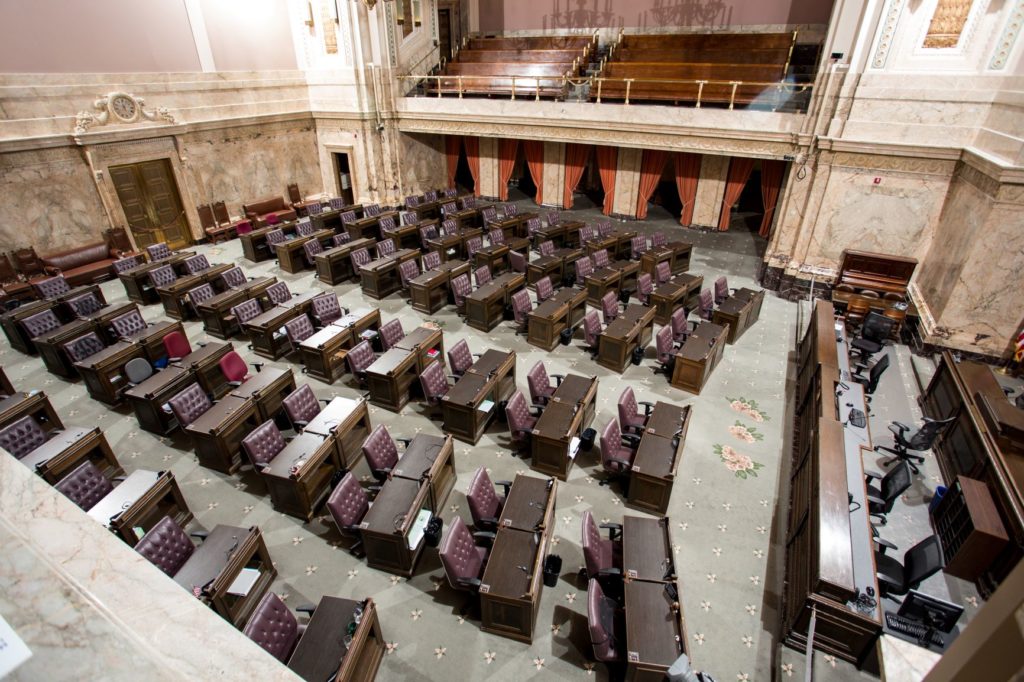
With remote session, people will have more opportunities to engage with the legislature than ever before. You can still watch committee hearings and floor action, contact your lawmakers, and testify on bills. And for the first time, you will be able to submit written testimony via an online portal that will be entered as part of the official record.
Here are five ways to get involved in the legislative process:
Learn—The whole legislative process, from start to finish, is explained at leg.wa.gov/legislature/Pages/Overview.aspx or check out this step-by-step explanation of How a Bill Becomes a Law
Watch—Go to TVW.org for broadcasts of debates, votes, committee meetings, and other events in the House and Senate. There’s also an extensive archive of past events, if you couldn’t watch it live.
Research—To look up legislation by lawmaker or topic, visit app.leg.wa.gov/billinfo/
Testify—The House will soon unveil that online portal for written testimony mentioned above. Stay tuned for more information, or contact my office we’ll help keep you informed about how to submit testimony to legislative committees.
Explore—Visit my legislative website to see what I’m working on (all my past newsletters and press releases are posted there), or like and follow my official legislative Facebook page.
Doing the people’s work safely

Dear friends and neighbors,
These are challenging times for our families, our communities, and our state. We’re all in this together, but it’s important to acknowledge that each of us is hurting right now in different ways.
This is at the forefront of my mind as the Legislature prepares for the 2021 session next month. We are ready to do the people’s work safely and transparently, and we can accomplish both in a remote session that protects the health of the public, staff, and legislators.
A remote session is not what we hoped for. It is unprecedented. But it has also given us the opportunity to innovate and come up with ways the Legislature can be more accessible to the people we serve. In fact, the public will have more opportunities to engage with us than ever before.
For example: for the first time, the House and Senate will be accepting written testimony from the public on bills before committees via email and postal mail. No matter where you live, you’ll be able to submit your comments remotely, and they will be entered into the testimonial record.
My focus is on getting the work done and keeping things moving forward in our state. Your questions, comments, and feedback are always welcome, so please don’t hesitate to contact me.
Sincerely,

New round of help for small businesses
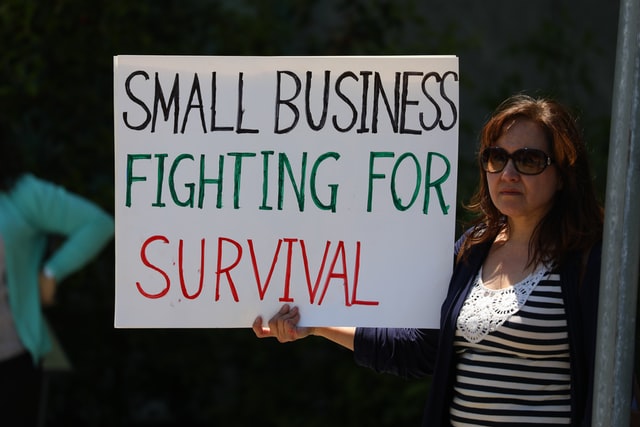
Working Washington Small Business Grants are available for businesses impacted by the COVID-19 emergency. Applications received by this Friday, December 11, will be given priority.
Who can apply?
Small businesses with annual revenues of $5 million or less in 2019 who are in the sectors most affected by public health measures to fight the COVID-19 virus. Those include restaurants, fitness centers, bowling alleys, and musical venues.
Nonprofits may be eligible if they have a primary activity that’s similar.
Applicants with revenues in excess of $5 million may receive funding if the Department of Commerce has leftover funds after giving grants to all the smaller businesses and nonprofits who applied and qualified.
What is the grant?
The maximum grant is $20,000, which can only be used to cover costs due to the pandemic which were necessary to continue operating. Example: rent.
How can you apply?
For a full checklist of information and to fill out an application online, go to commerce.wa/bizgrants
State launches app to help stop the spread of COVID-19
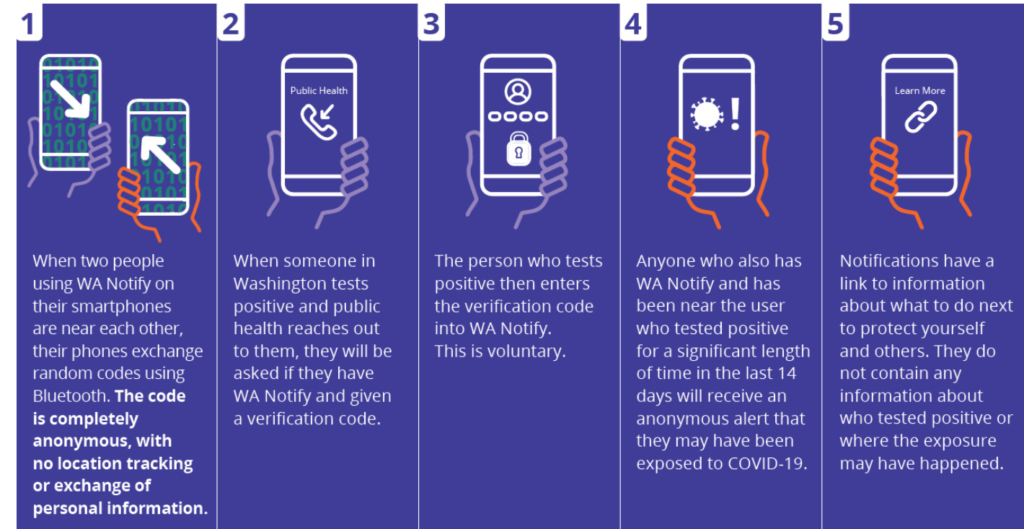
A new statewide COVID-19 exposure tool for iPhone and Android users called WA Notify is now available! This optional tool is free to use, anonymous, and protects your privacy. It works by alerting you whenever you are around another WA Notify user who later tests positive for COVID-19.
Using WA Notify is completely voluntary. In the first 24 hours it was available, 700,000 people in our state chose to download or activate it on their phones.
Were you one of the 700,000 Washingtonians to activate WA Notify in the first 24 hours it was available? If so, THANK YOU!
Whether or not you chose to use this tool, you can still play an important role in helping stop the spread of COVID-19 in our communities by wearing a mask, washing your hands, and staying home as much as possible.
Open enrollment period for health insurance ends December 15

It’s more important than ever to make sure you and your family have the health care coverage you need. The annual open enrollment period ends December 15. Sign up by then to receive insurance beginning in January 2021.
Visit WAHealthPlanFinder.org to browse and compare plans—including new Cascade Care plans. WA Health Plan Finder is your one-stop-shop for updating your information, submitting documents and finding financial assistance. Don’t delay!
Students: Apply now for financial aid for college

In Washington state, there are two ways to apply for financial aid:
- U.S. citizens and eligible non-citizens apply with the FAFSA (Free Application for Federal Student Aid).
- People who can’t file the FAFSA—due to immigration status, defaulted federal loans, or other issues with federal aid—can apply for state aid with the WASFA (Washington Application for State Financial Aid).
Completing a FAFSA or WASFA financial aid application is a crucial first step toward college and career training. Many families assume they won’t qualify for aid, but there’s more help available than ever before—the only way to know for sure if you’ll qualify is to apply.
It is time to apply for financial aid for the 2021-22 school year. Filing a financial aid application gives you more options for the future. Learn more, get support, and apply for financial aid at wsac.wa.gov/apply.
Our final update for now, and resources going forward
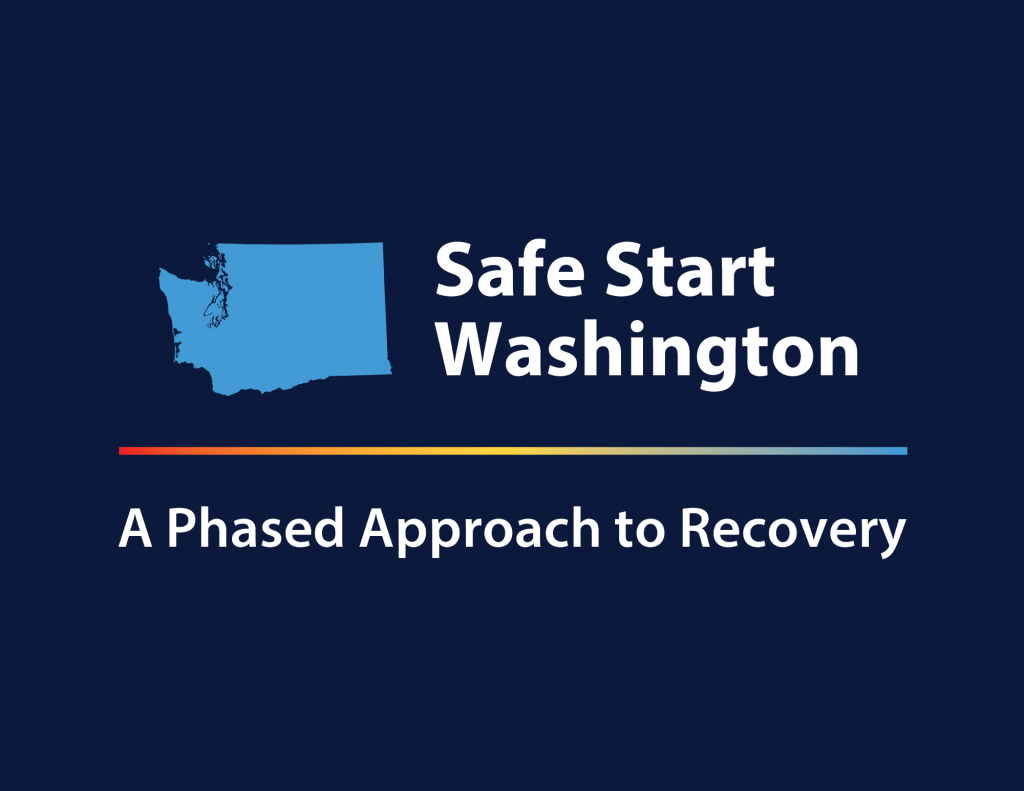
Dear friends and neighbors,
By staying home and practicing social distancing, we slowed the spread of COVID-19 in our state. Last week, the governor announced a four-phased approach to reopening. Phase I started this week, and includes opening up some outdoor recreation and restarting certain types of businesses, like some construction, landscaping, auto sales, and curbside retail.
We support a data-driven and public health-oriented approach as we continue to loosen restrictions and reopen our state further. It’s been said that this will be like turning a dial, not flipping a switch. No one wants infection rates to start climbing so that we have to dial things back again.
That’s why we’re asking you to continue practicing physical distancing, keep washing your hands, and follow the guidelines for the different phases of reopening.
We’re all in this together, and until the development of an effective vaccine and effective treatment for COVID-19, or herd immunity, we all have to look out for each other as we begin our economic recovery.
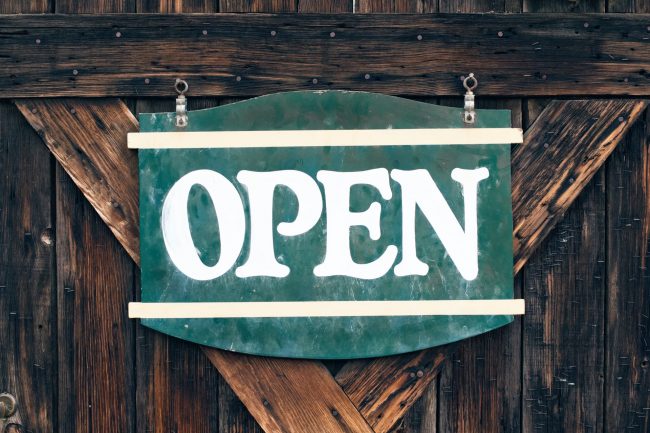
What House Democrats are working on right now
Currently, issue-focused teams convened after the 2020 session concluded are working on everything from economic recovery, to food security, to bridging the digital divide so that all Washingtonians have access to broadband, and more.
By determining current gaps and needs across the state, these teams will provide our federal partners with recommendations for how to structure future stimulus packages to help more Washingtonians.
Both these teams and our current House committee chairs are taking the lead on the state’s response as it pertains to the Legislature’s role. This work will inform our caucus priorities in a potential special session and in the 2021 Legislative Session, so we can best support workers, small businesses, and communities struggling all across our state.
This is our last newsletter for a while – but we’re still here for you
During an election year, there are certain restrictions on our communications to prevent the use of state resources for election purposes. These restrictions include a freeze on e-newsletters such as this one, as well as updates to our legislative websites – meaning no new content can be added beginning May 11, 2020 until after the general election in November.
However, we are still able to respond to your emails or phone calls, so please continue to reach out if you have any questions, concerns, or comments.
COVID-19 resources
As we continue navigating these challenging times, the need for accurate, up-to-date information is important. The links below are trusted sources of COVID-19-related information for our community and state:
- Washington state’s official COVID-19 website
- Washington State Department of Health
- Tacoma-Pierce County Health Department
Thank you for helping to flatten the curve, and we’re looking forward to when we can see you out in the community once again.
Sincerely,


Speaker Laurie Jinkins Rep. Jake Fey
